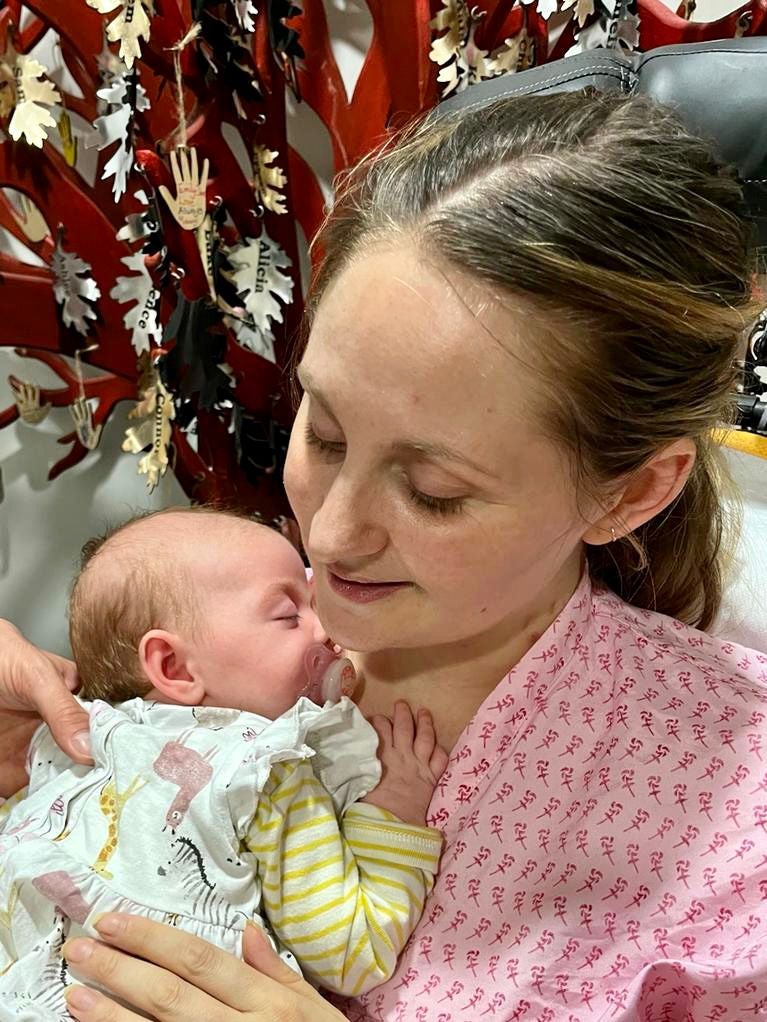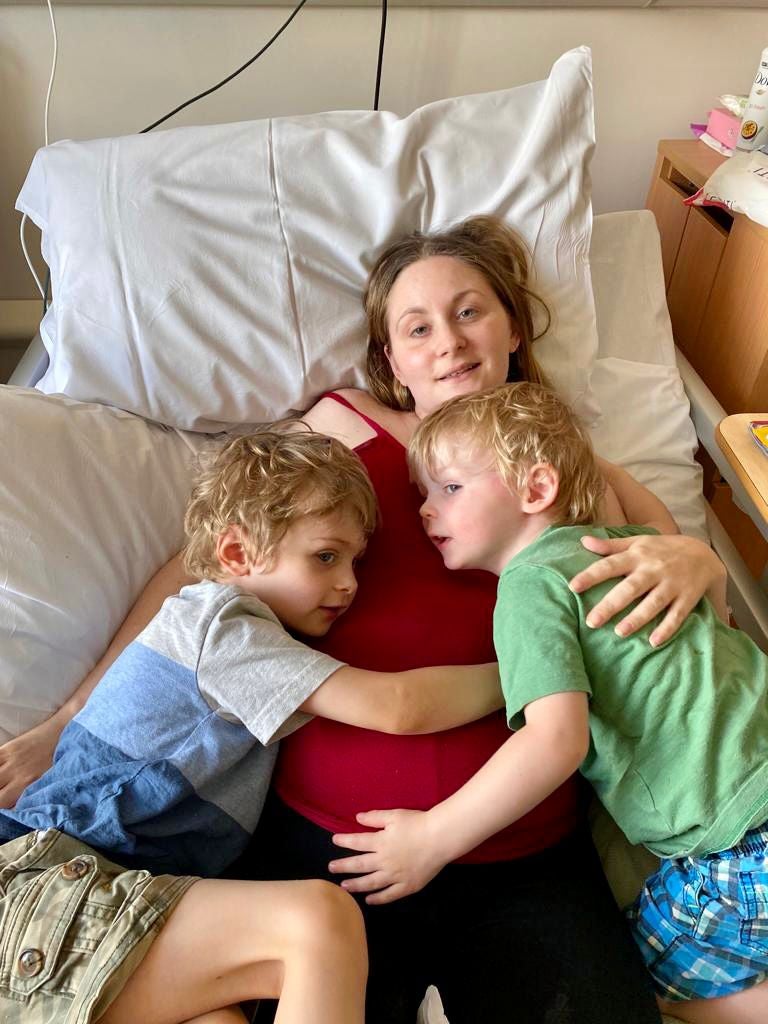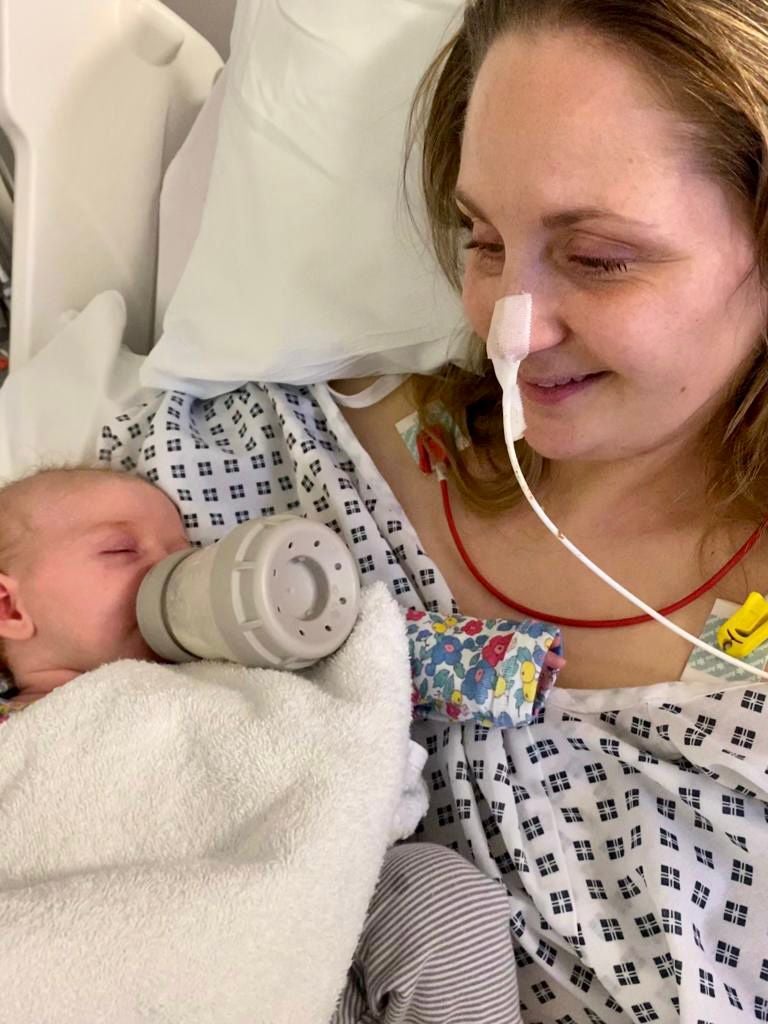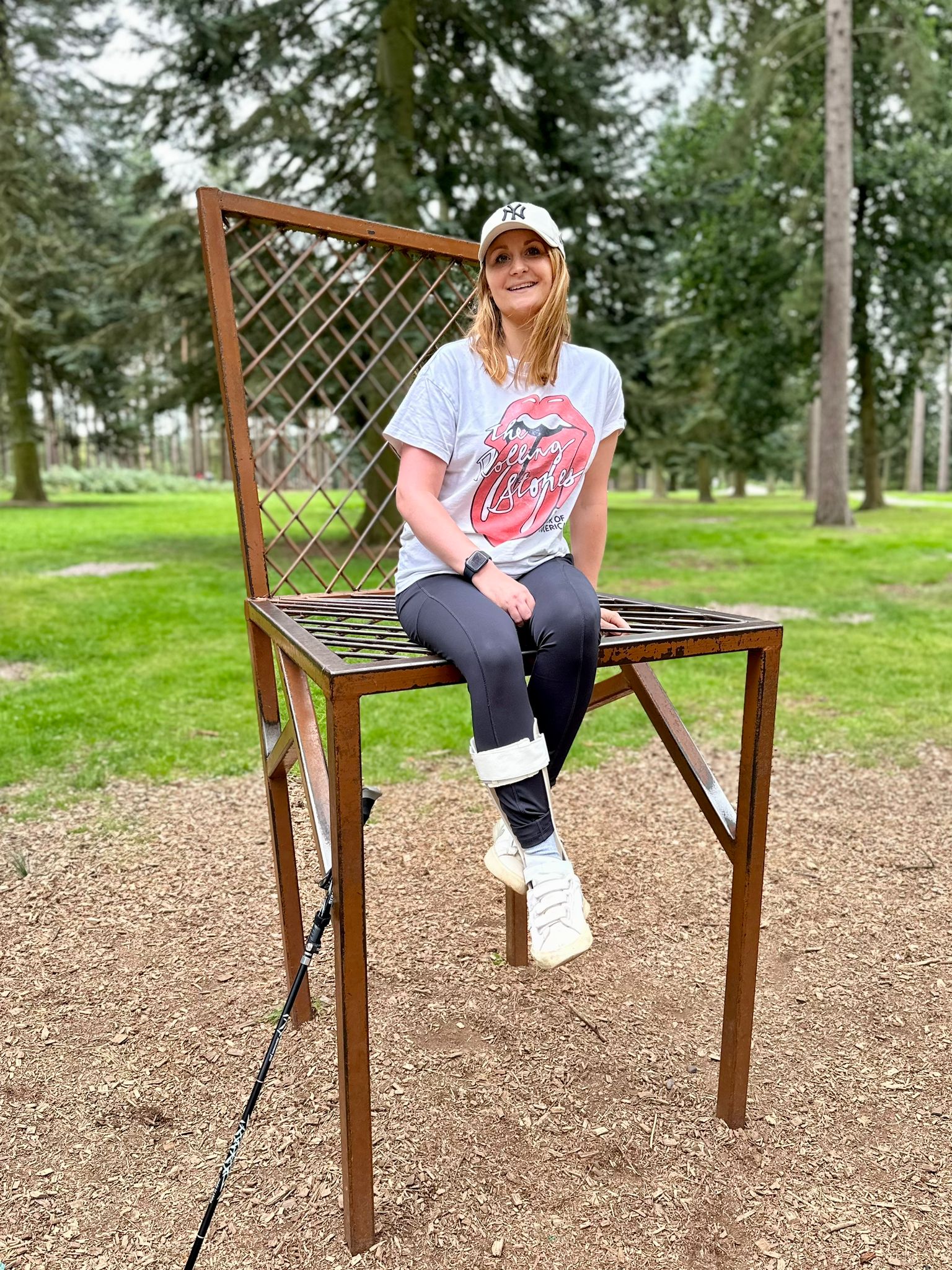
A mother who had a stroke just three weeks after giving birth has said it is “heartbreaking” her paralysis and amnesia meant she could not support her baby.
Charlotte Coulbert, 37, who lives in Stramshall, Staffordshire, with her husband, Chay, 36, and their three children, Jaxon, six, Theo, four, and Verity, two, suddenly collapsed while watching television with her kids on June 14 2022.
She had a stroke in the ambulance called for her due to a blood clot blocking her brain’s blood supply – later learning the clot was caused by a hole in her heart, which she did not know she had.
When she arrived at the Royal Stoke University Hospital, Charlotte was put in an induced coma and woke up 10 days later with paralysis on her right side and aphasia, a communication disorder that can also impact memory.
She spent three weeks relearning her date of birth and it took her six months to walk just a few steps again, but through physiotherapy and speech work Charlotte has steadily regained her strength, now hoping to return to her career in sales with a walking stick and her speech improved.

Although she often felt like a “burden” to her family, she remains grateful for the support of her husband Chay, an ex-Royal Marine who understands trauma after losing his leg in Afghanistan in 2012.
Charlotte told PA Real Life: “It was heartbreaking, really, as a mother, not being able to support your newborn.
“I feel like I was a burden, my husband had to do everything… he had to source a nanny because he couldn’t look after all three kids and work, and pay for that.

“So it’s been very tough, but now I can help a little bit, I can cook basic meals, load the dishwasher, and do some washing.
“I’m slowly getting back into family life, but it’s so hard because I went from being a mummy doing the school run to not being able to do it all of a sudden.”
Just a few weeks after giving birth to her daughter via a planned c-section on May 24, 2022, Charlotte’s health took a turn for the worse.
On June 14 2022, while watching TV with her children, she suddenly collapsed, gasping for breath.

“I shouted for my husband,” Charlotte recalled.
“He called an ambulance straight away, but I was going in and out of consciousness.
“I remember seeing him, and then the paramedics, but it’s all very blurry.
“It was terrifying; I was struggling to breathe, and the paramedics kept telling me, ‘Charlotte, you have to breathe,’ until I zoned out completely.”
On the way to the hospital, Charlotte suffered an ischemic stroke due to a blood clot blocking her brain’s blood supply.
She was later told that the clot itself was caused by having a hole in her heart, which she did not realise she had.
Charlotte was put in an induced coma, and for ten days, it was “touch and go” – as she dealt with complications, including internal bleeding, a liver laceration, and the removal of a large blood clot from her lung.
When she woke up, Charlotte was “devastated” to have missed ten days of her newborn’s life.
She said: “When I woke up and could just see Verity, it was surreal, she’d grown even in that time.

“I attempted to feed her with a bottle, but I was so weak I couldn’t really do it.
“It was very difficult for me, strange – I couldn’t believe it really happened; I was still in shock.”
Charlotte was also paralyzed on her right side and struggling with severe aphasia, making it hard for her to speak.
“I would just give people one-word answers when someone asked me a question because I couldn’t think how to construct a sentence,” she explained.
“I knew in my head what I wanted to say, but it didn’t come out of my mouth.”
The aphasia also affected her memory; she couldn’t remember where she was, what date it was, and even had to relearn her birthdate, which took around three weeks.
Charlotte spent six weeks in the acute stroke ward at Royal Stoke University Hospital and another six in a rehabilitation unit, where she focused on rebuilding strength through arm exercises and weekly speech therapy sessions.
She also struggled with swallowing and was tube-fed until she could gradually be reintroduced to solid foods under supervision.
By September 2022, Charlotte returned home, though she had to sleep downstairs and could barely walk.
With physiotherapy, she achieved her goal of walking a few steps from her front door to her living room by Christmas 2022.
Over time, her mobility has improved – now, she does aqua therapy, goes to the gym multiple times a week, and uses a walking stick.

However, she has foot drop, a difficulty in lifting the front part of her right foot, and uses a functional electrical stimulation (FES) device with a leg splint.
“I can’t move individual fingers on my right side, but I can grip things.” Charlotte said.
“People don’t realise it’s an ongoing thing – recovery for a stroke is for life.
“I have to do stretches every morning because my muscles tense up.”
Her speech has also progressed – she’s nearly back to her old self but still faces challenges when tired or stressed.
On February 19 2024 she also had a patent foramen ovale (PFO) closure to close the hole in her heart and reduce the risk of her having another stroke.
Throughout her recovery, Charlotte has remained employed as a sales representative and is eager to return to work to support her family.
Charlotte is very grateful for her husband’s support throughout her recovery – as an ex-Royal Marine who lost his right leg in Afghanistan in 2012, he understood what it was like to go through a traumatic experience.
“He stood on a detonation device and lost his leg, he has helped me overcome these challenges and reassured me that it does get better,” she said.
“I have good and bad days; looking back, when I was in hospital, I was depressed and didn’t care who came to see me, it was so hard mentally.”
Now, she believes she is a more patient and grateful person and feels her experience has taught her not to sweat the small stuff.
“I think in life you just have to do what makes you happy,” she said.
“I think people also need to be more aware of the signs of a stroke and understand it does not just happen to elderly people.”
The latest research by the Stroke Association found that one in five stroke survivors like Charlotte, (18%) say that talking to other stroke survivors was the single most important part of their recovery, but in fact only a quarter (27%) did so.
To mark World Stroke Day last week, the charity, which connects survivors with each other to improve recovery from stroke, surveyed over 1,000 UK stroke survivors.
The research findings highlighted just how important connecting with other stroke survivors was to their recovery.
You can find more information about their research and the support the charity offers by visiting www.stroke.org.uk







